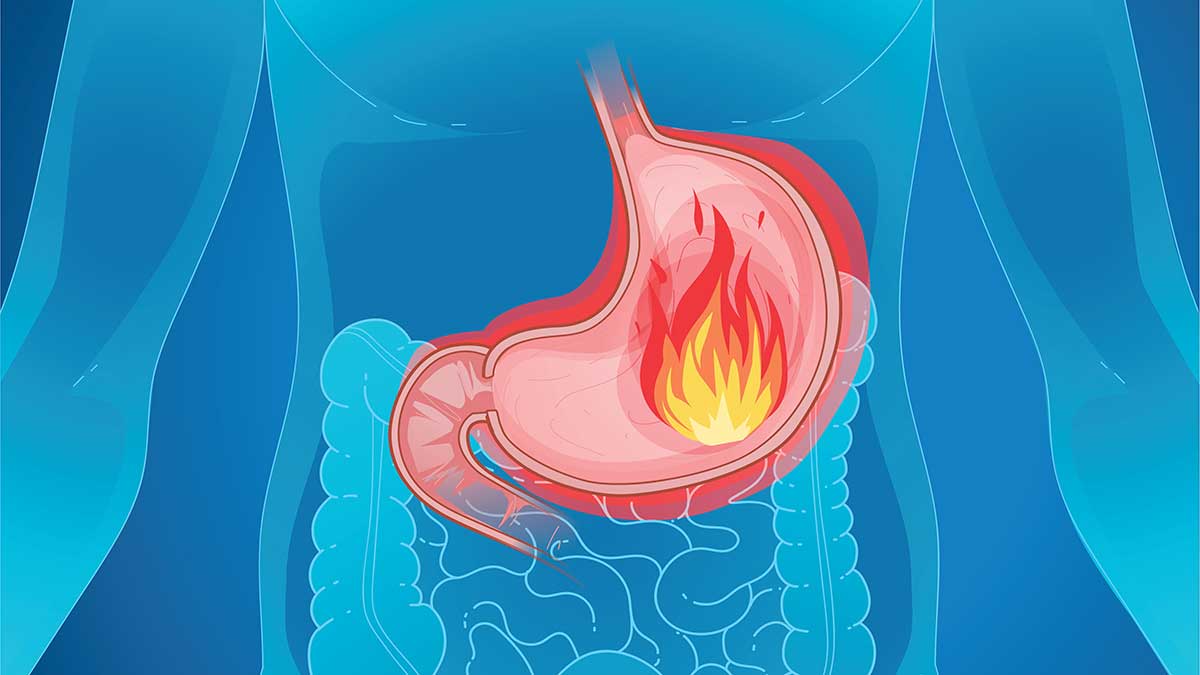Inflammation: it’s a word that carries with it images of swelling, redness, and discomfort. But what does it truly mean for our bodies and overall well-being? Fundamentally, inflammation is the body’s natural response to injury or illness—a protective measure aimed at healing. However, when inflammation becomes chronic, it transforms from a helpful ally into a destructive adversary, potentially leading to various health complications including heart disease, cancer, and autoimmune disorders.
This guide delves into the intricacies of inflammation—what causes it, the telltale symptoms, methods of diagnosis, and, crucially, ways to manage and prevent it. By understanding the true nature of inflammation, you can equip yourself with the knowledge to make informed decisions for your health and longevity.
Table of Contents
What is Inflammation?
Imagine your body as a fortress, always ready to defend itself against invaders. When enemies approach, your defenses spring into action. In the context of our bodies, this defensive reaction is what we call inflammation.
At its core, inflammation is our body’s response to a harmful or irritating situation, substance, or condition. In simpler terms, it’s how your body reacts when something’s not right, a sign that it’s fighting to maintain balance and well-being.
Whether it’s a twisted ankle, an invasion by harmful bacteria, or a thorn prick on your finger, inflammation is your body’s way of saying, “Hey, we have a problem here! Let’s fix this!”
This process can be visualized as a chain reaction. Upon detecting something harmful or out of place, the affected cells send out alarm signals, which are received by your immune system. The immune system then recruits white blood cells and proteins to the site of injury or infection. These defenders work diligently to protect and repair the area, causing the characteristic signs of inflammation – redness, swelling, heat, and sometimes pain and loss of function.
In essence, inflammation is your body’s protective shield, its first line of defense against a wide array of issues. But like any good defense mechanism, it needs to be managed and understood properly for it to be truly beneficial. And that’s what we’ll explore further in this article.
Acute and Chronic Forms of Inflammation
Just like there are various kinds of intruders and attacks, our body has different types of responses. Inflammation, too, comes in two primary forms – acute and chronic.
Acute Inflammation
Acute inflammation is your body’s immediate response to an injury or infection. Picture it as an emergency dispatch call that mobilizes your body’s internal armed forces – white blood cells, cytokines, leukotrienes, and more. These soldiers rush to the site of harm with the aim of repairing and restoring the injured regions.
This sudden response is typically short-lived, subsiding once the healing is completed. It’s a temporary state of high alert, geared towards quickly resolving the problem and restoring function.
Acute inflammation often presents itself through four cardinal signs: redness, pain, heat, and swelling. These signs indicate that your body is actively trying to heal itself. So, the next time you see a swollen, red bump after a mosquito bite or feel the heat and tenderness around a wound, know that it’s your body’s acute inflammatory response in action.
Chronic Inflammation
While acute inflammation is a brief, intense reaction, chronic inflammation is a slower, longer-lasting process. Instead of a quick dispatch call, think of it as a long-drawn-out conflict that creates continuous disturbances in many bodily functions.
Chronic inflammation can stem from various factors, including persistent infections, prolonged exposure to irritants, or even a malfunctioning immune system. This malfunction, called autoimmune reactions, can cause the body to mistakenly attack its own healthy tissues, leading to an array of diseases.
The conditions that can arise from chronic inflammation are diverse, affecting various parts of the body. They range from arthritis, thyroid disease, and multiple sclerosis, to more severe conditions like lupus (SLE), psoriasis, celiac disease, inflammatory bowel diseases like Crohn’s and ulcerative colitis, diabetes, heart disease, and even cancer.
Recognizing these two types of inflammation – acute and chronic – is an essential step towards understanding and managing your health effectively. They are two sides of the same coin, both protective mechanisms, but with different durations, intensities, and potential long-term effects on your health.
Causes of Inflammation
Understanding the triggers of inflammation is crucial to managing it effectively. Causes can be as diverse as our everyday habits to sudden, unexpected events. They can lead to both acute and chronic forms of inflammation, shaping our overall health. Let’s delve into some of the typical causes:
Acute Inflammation Triggers
Acute inflammation often occurs due to sudden and unexpected injuries. It’s like an emergency alert system that your body sets off in response to:
- Physical Trauma: This can include falls, collisions, cuts, wounds, surgical procedures, or any physical injury.
- Emotional Distress: Horrifying or violent scenes, sudden emotional stress, or fear for one’s life can trigger an inflammatory response.
- Overindulgence: This can be an excess of food, alcohol, drugs, or smoking.
- Lack of Sleep: Not getting enough sleep can put your body under stress and trigger inflammation.
- Exposure to Toxins: Toxic or foreign materials such as pesticides, artificial foods, PFAS, radiation from unnatural sources like cell phones, microwave towers, and “smart” devices can trigger an inflammatory response.
Chronic Inflammation Triggers
While acute inflammation is an immediate response to an injury or infection, chronic inflammation often results from long-term or repetitive exposure to stressors. Some of the typical causes include:
- Repetitive Stress or Injury: This includes high-impact work such as prolonged military operations, competitive athletics, and other physically demanding activities.
- Chronic Stress: The constant stress of a situation at home or work is a common cause of chronic inflammation.
- Poor Nutrition: This includes high sugar intake, high fructose corn syrup, trans fats, processed foods, dairy, meat, poultry (high in omega 6), and many seed oils including sunflower, safflower, soybean, corn, canola, and grapeseed.
- Imbalanced Diet: An imbalance in the omega 6:3 ratio can trigger inflammation. The ideal ratio is 1-2:1, but many people consume a ratio of 20:1.
- Low Fiber Intake: A diet low in fiber can lead to inflammation.
- Sedentary Lifestyle: Inactivity and sitting in front of a computer or other device for long periods daily can contribute to chronic inflammation.
Other Triggers
Additionally, certain medications, some supplements, and poor eating habits can also lead to inflammation. While medications and supplements are sometimes necessary for managing health conditions, it’s important to be aware of their potential side effects and to use them judiciously.
Remember, understanding the cause is the first step to prevention and treatment. Identifying and modifying these triggers can significantly reduce your body’s inflammatory response and improve your overall health.

Symptoms of Inflammation
Inflammation, whether acute or chronic, produces certain signs and symptoms that our body communicates to us. These symptoms can vary in intensity and may not always be easy to pinpoint directly to inflammation, as they can mimic those of other health conditions. Nonetheless, if you’re experiencing one or multiple of the following symptoms, your body may be telling you it’s dealing with inflammation:
- Muscle and Joint Pain: This is one of the most common symptoms of inflammation. It can manifest as a generalized discomfort or a localized pain in certain areas.
- Fatigue: Chronic inflammation can cause feelings of tiredness or a lack of energy, impacting your overall wellbeing.
- Puffy Bags Under Eyes: Persistent puffiness or bags under your eyes can be a sign of inflammation in the body.
- Gum Diseases: Inflammatory responses can result in periodontal diseases, leading to symptoms like swollen, red, or bleeding gums.
- Skin Conditions: Inflammatory skin conditions, such as eczema, rashes, blotches, and psoriasis, can be outward manifestations of internal inflammation.
- Weakness, Numbness, Tingling: These could be signs of systemic inflammation, especially when these symptoms are persistent and unexplained.
- Limited Range of Motion: Inflammation in joints and tissues can limit your mobility, leading to stiffness or difficulty moving certain body parts.
More severe symptoms may also include:
- Gastrointestinal Distress: Symptoms such as gas, bloating, gastroesophageal reflux disease (GERD), diarrhea, constipation, irritable bowel syndrome (IBS), and dysbiosis can indicate inflammation in your digestive system.
- Frequent Infections: If you’re falling sick often, it might be a sign that chronic inflammation is impacting your immune system.
- Erectile Dysfunction: Chronic inflammation can also contribute to erectile dysfunction.
- Lack of Interest in Pleasure: If you’re losing interest in activities you once enjoyed, it could be a sign of chronic inflammation affecting your mental health.
- Weight Gain: Particularly around the abdomen or gut, can be linked to systemic inflammation.
- Mood Disorders: Inflammation may play a role in depression, anxiety, and other mood disorders.
These symptoms can sometimes be subtle and easy to dismiss. However, it’s essential to listen to your body’s signals and seek medical advice if you notice persistent or troubling symptoms. A healthcare professional can help determine whether inflammation is the cause and guide you on the right path to manage it.
How Inflammation is Diagnosed
Recognizing the symptoms of inflammation is one thing, but getting a definitive diagnosis often requires more in-depth analysis and tests. Here’s how healthcare professionals typically diagnose inflammation:
History, Physical & Mental Exam
The first step usually involves a thorough evaluation of your medical history and a physical exam. Your doctor will ask you about your symptoms, lifestyle habits, and any known medical conditions. They will also conduct a physical examination to check for visible signs of inflammation, such as redness, swelling, or warmth.
A mental health assessment might also be conducted. Given the possible connection between inflammation and mood disorders, understanding your mental health status can provide important insights.
Blood Testing
Blood tests are common tools for diagnosing inflammation. They can reveal specific markers that indicate the presence and level of inflammation in your body. Some commonly used blood tests include:
- ESR (Erythrocyte Sedimentation Rate): This test measures how fast red blood cells settle at the bottom of a test tube. A faster rate might indicate inflammation in your body.
- CRP (C-Reactive Protein): This protein increases in your blood when there’s inflammation. A high CRP level can indicate acute inflammation or an infection.
- SPEP (Serum Protein Electrophoresis): This test measures specific proteins in your blood, helping identify any abnormal proteins that might indicate inflammation or other conditions.
- Blood Viscosity: This test measures the thickness and stickiness of your blood, which can increase due to inflammation.
- Fibrinogen: This protein, which helps blood clot, can increase in response to inflammation. A high fibrinogen level may suggest an inflammatory condition.
Imaging and Other Tests
In some cases, additional tests may be needed to locate the inflammation or assess its severity. These might include X-rays or MRIs, which can reveal inflammation in joints and other tissues. For gastrointestinal issues, endoscopies might be used to directly visualize the internal structures and assess the level of inflammation.
Diagnosing inflammation is not always straightforward, given the wide range of symptoms and causes. However, with a comprehensive approach that includes medical history, physical examination, and appropriate tests, healthcare professionals can accurately diagnose inflammation and suggest the most effective treatment options.
Prevention of Inflammation
While inflammation is a natural response by our bodies to ward off harmful invaders or heal injuries, prolonged inflammation can be detrimental to our health. Fortunately, there are several strategies you can implement to prevent unnecessary inflammation. These preventative measures focus primarily on lifestyle modifications and dietary changes.
Things to Avoid to Stop Provoking Inflammation
Certain substances and behaviors are known to provoke inflammation. Minimizing or avoiding these can significantly reduce your risk:
- Toxic Materials: This includes exposure to harmful chemicals or radiation, both of which can trigger inflammatory responses.
- Dietary Triggers: High intake of sugar, alcohol, and processed foods, especially those containing white flour (like bread, pasta, cake, cookies), candies, chips, and soda, can trigger inflammation. Additionally, be cautious with products labeled “No Sugar” or “Sugar-Free,” as they often contain artificial sweeteners that can also provoke inflammation.
- Smoking: Cigarette smoke contains a multitude of toxins that can lead to inflammation.
- Negative Energies: Surround yourself with positive energies and people, as stress and negative emotional states can stimulate an inflammatory response.
Caution: Be aware of the potential inflammatory side effects of any pharmaceuticals you’re using. Always consult with your healthcare provider and understand the pros and cons before using any medication.
Things to Do to Reduce Inflammation
Embracing healthier habits and adjusting your diet can greatly help in reducing inflammation:
- Probiotics and Prebiotics: Feed your gut health with prebiotics such as flax, chia, artichokes, avocados, foods from the allium family (onions, garlic, leeks, shallots), oats, barley, apples, bananas, and berries. Include probiotic-rich fermented foods like miso, tempeh, kimchi, sauerkraut, kombucha, and pickled veggies.
- MCT Oils: Consuming a few teaspoons of MCT oils like coconut oil can help manage inflammation.
- Exercise: Regular physical activity, even in small intervals throughout the day, can help regulate inflammatory responses.
- Sleep: A good night’s sleep is crucial for overall health, including keeping inflammation in check.
- Sunlight: Sun exposure, especially between 10 am and 2 pm, can provide your body with vitamin D, a nutrient that plays a role in reducing inflammation.
- Fun and Recreation: Engage in activities that you enjoy and that make you laugh. Positive emotional states are linked to lower levels of inflammation.
Remember, these are general guidelines and individual needs may vary. Always consult with a healthcare professional to find out what’s best for your specific situation.
Anti-Inflammatory Foods
In addition to the lifestyle and dietary measures mentioned above, certain foods are well-known for their anti-inflammatory properties. Including these in your regular diet can help mitigate inflammation and promote overall health:
- Cruciferous Vegetables: Such as broccoli, Brussels sprouts, cabbage, kale, and collard greens, are nutrient-dense and packed with antioxidants.
- Berries: Rich in anthocyanins, a type of antioxidant with potent anti-inflammatory effects.
- Apples: Packed with quercetin, a plant pigment that helps regulate inflammation.
- Onions: Provide a double whammy with quercetin and sulfur compounds, both known for their anti-inflammatory properties.
- Papaya: Contains papain, an enzyme that can reduce inflammation.
- Cacao and Unsweetened Dark Chocolate: Besides being a treat to your palate, these provide a good dose of magnesium, a mineral known for its anti-inflammatory benefits.
- Olives: High in monounsaturated fats, particularly Omega-7 (oleic acid) and packed with inflammation-fighting antioxidants.
- Macadamia Nuts: These, as well as other fatty nuts like cashews, almonds, walnuts, hazelnuts, Brazil nuts, and pistachios, are rich in monounsaturated fats, proteins, minerals, vitamins, antioxidants, and possess anti-inflammatory properties.
- Avocado: High in poly and monounsaturated fats, it is a prebiotic and contains Avocatin B, a compound that can fight leukemia cells.
- Mushrooms: Certain varieties like Reishi, Shiitake, Maitake, Lion’s Mane, Chaga, and Cordyceps are recognized for their immune-boosting and anti-inflammatory effects.
- Fatty Fish: Such as salmon, sardines, anchovies, and herring, are rich in omega-3 fatty acids that are excellent for reducing inflammation.
- Pomegranate: Contains potent punicalagins, which have been shown to reduce gut inflammation and enhance heart health and memory.
- Green Tea: Rich in EGCG (Epigallocatechin-3-gallate), a compound known for its powerful anti-inflammatory effects.
- Holy Basil Tea (Tulsi): An adaptogen that helps reduce stress, improves circulation, and aids in reducing heavy metal toxicity.
- Spices and Herbs: Ginger, cinnamon, cardamom, garlic, black pepper, and turmeric all have potent anti-inflammatory compounds. Turmeric’s main compound, curcumin, is especially powerful when paired with black pepper, which contains a compound known as Bioperine that enhances its absorption.
Incorporating these foods into your diet can serve as a natural way to mitigate inflammation. However, keep in mind that each individual’s response to foods can vary, so it’s crucial to listen to your body and see what works best for you. Consult with a healthcare professional or a dietitian for personalized advice.

Taming the Raging Fire of Inflammation
There are numerous approaches to managing inflammation, both conventional and unconventional. Besides a healthy diet and certain supplements, emotional wellbeing, mental health support, exercise, and even certain therapies can contribute to reducing inflammation levels. Here are some strategies that might help:
- Love and Gentleness: Surrounding oneself with love and practicing gentleness can reduce stress, a major contributor to inflammation.
- Daily Gatherings with Open Hearts: Foster relationships that nurture positivity, openness, and understanding.
- Anger and Stress Reduction: Minimize exposure to triggers such as mainstream media that can lead to stress. Try to connect with people who share positivity and truth.
- Healthy Eating: Follow a diet that is rich in anti-inflammatory foods, as mentioned earlier.
- Supplements: Certain supplements like Resveratrol, Vitamin D, C, B Complex, Alpha Lipoic Acid, CoQ10, PQQ, Minerals, Sun Chlorella, MSM, Curcumin with Bioperine, can aid in reducing inflammation.
- Exercise: Regular physical activity promotes circulation, reduces stress, and can help manage inflammation.
- Social Support: A strong network of family, friends, or a supportive group can provide emotional sustenance and aid stress management, thereby mitigating inflammation.
- Environment: Fresh air and a clean environment can contribute to overall wellbeing and help control inflammation.
- Meditation: A regular meditation practice can lower stress levels, thereby reducing inflammation.
- Sound and Movement: Engaging in activities that involve sound and movement, such as dance or music therapy, can have a positive impact on emotional health and inflammation.
- Smoking Cessation: Quitting smoking is crucial, as it’s a known factor contributing to inflammation and many other health issues.
- Mental Health Support: Therapies such as hypnotherapy, and seeking assistance from mental health professionals can help manage stress, anger, and other negative emotions that can cause inflammation.
- Therapies like Centropix: Consider looking into therapies such as Centropix Therapy, Cloud and Bubble. These might offer unique ways to manage and reduce inflammation.
These strategies can help in mitigating inflammation and its impact on the body. As with any health intervention, it’s essential to consult with a healthcare professional before starting any new treatment or therapy.
Potential Hazards of Conventional Anti-Inflammatory Usage
While conventional anti-inflammatory medications can help manage symptoms of inflammation, long-term usage can have serious potential hazards. These substances are not curative but function mainly as symptom controllers, which might sometimes induce more symptoms. Here is an outline of some common anti-inflammatory medications and their potential side effects:
- Aspirin: Current evidence does not show benefits of long-term use. Always discuss the benefits and risks with your physician.
- Ibuprofen (Motrin, Advil, Midol): This drug can be particularly harmful to the gastrointestinal tract and kidneys.
- Naproxen (Aleve): Similar to ibuprofen, naproxen can negatively affect the gastrointestinal tract and kidneys.
- Meloxicam: This COX-2 inhibitor is commonly prescribed and should be used short term only.
- Celebrex (Celocoxib): Another COX-2 inhibitor, Celebrex should also be used short term only.
- Steroids: While they can be life-saving in the short term, steroids have many potential detrimental effects.
- DMARDS: Used for rheumatoid arthritis, juvenile rheumatoid arthritis, multiple sclerosis, ankylosing spondylitis, lupus erythematosus, Sjogren’s syndrome, inflammatory bowel diseases like Crohn’s or ulcerative colitis, and certain cancers.
The following adverse effects can arise from the use of the aforementioned medications:
- Gastrointestinal Issues: Including upset stomach, nausea, vomiting, bleeding, gastritis, heartburn, GERD, ulcerations, constipation, and diarrhea.
- Dizziness
- Easy Bruising
- High Blood Pressure
- Stroke
- Heart Attack
- Heart Failure
- Kidney Damage
- Steroid Specific Issues: Steroids can cause osteoporosis, osteonecrosis, diabetes, obesity, and eye damage.
- DMARD and Biologic Specific Issues: DMARDS can alter immunity and increase susceptibility to infections and malignancies. Biologics, as newer agents, also carry their own set of risks.
These potential hazards underscore the importance of cautious use of these drugs and constant communication with healthcare providers to assess their risks and benefits in your specific health situation. Always consult your healthcare professional before starting any new treatment or therapy.
Conclusion
Inflammation can be thought of as a fire within the body. Like any fire, it can be useful when controlled, but a raging inferno can cause extensive damage. Your lifestyle choices can serve as either preventive measures to keep the fire at bay or as flammable elements that fuel the flames. The importance of making health-conscious decisions cannot be overstated.
Ask yourself, “Is this important to me?” If you consistently incorporate inflammatory triggers into your daily life, you’re setting a course for a significant health crisis. Instead, seize this moment to initiate change and resolve to mitigate inflammation.
At the WellCome OM Integral Healing & Education Center, we offer several services that can help you on this journey towards a healthier lifestyle and reduced inflammation:
- Naturopathic Medicine: This holistic approach focuses on natural remedies and the body’s innate ability to heal and maintain itself.
- IV Nutrition & Chelation: Intravenous therapies that provide essential nutrients directly into the bloodstream and remove heavy metals and toxins from the body.
- Wholistic Nutritional Counseling: Personalized advice on diet and lifestyle to optimize your health and well-being.
- PureBioEnergy Healing: A non-invasive, safe, and proven method of healing that harnesses the body’s bio-energy field to aid recovery and maintain health.
- Wellness Life Coaching: Personal guidance to help you make lasting changes to improve your health and wellness.
Remember, the choices you make each day can either fan the flames of inflammation or douse them completely. Make the decision to prioritize your health and wellbeing today.
References & Recommended Reading
- Brothers, L. (2015). The Best of Healthy Living. CreateSpace Independent Publishing.
- Kushi, M. (2004). The Macrobiotic Path to Total Health. Ballentine Books.
- Muelrath, L. (2015). The Plant-Based Journey: A Step By Step Guide. BenBella Books.
- Rawls, B. (2022). The Cellular Wellness Solution: Tap into Your Full Health Potential with Science Backed Power of Herbs. Vital Plus.
- Very Well Health. Healing Herbs for Health.
- Cleveland Clinic. Disease-Modifying Antirheumatic Drugs (DMARDS).
- Rethinking Your Sip: The Unfiltered Truth About Alcohol - December 22, 2025
- Consumer Beware: The Ease of Deception in the Food Industry - October 28, 2025
- The Modern Plague of Addiction: Reflections on a Painful Subject - July 29, 2025





